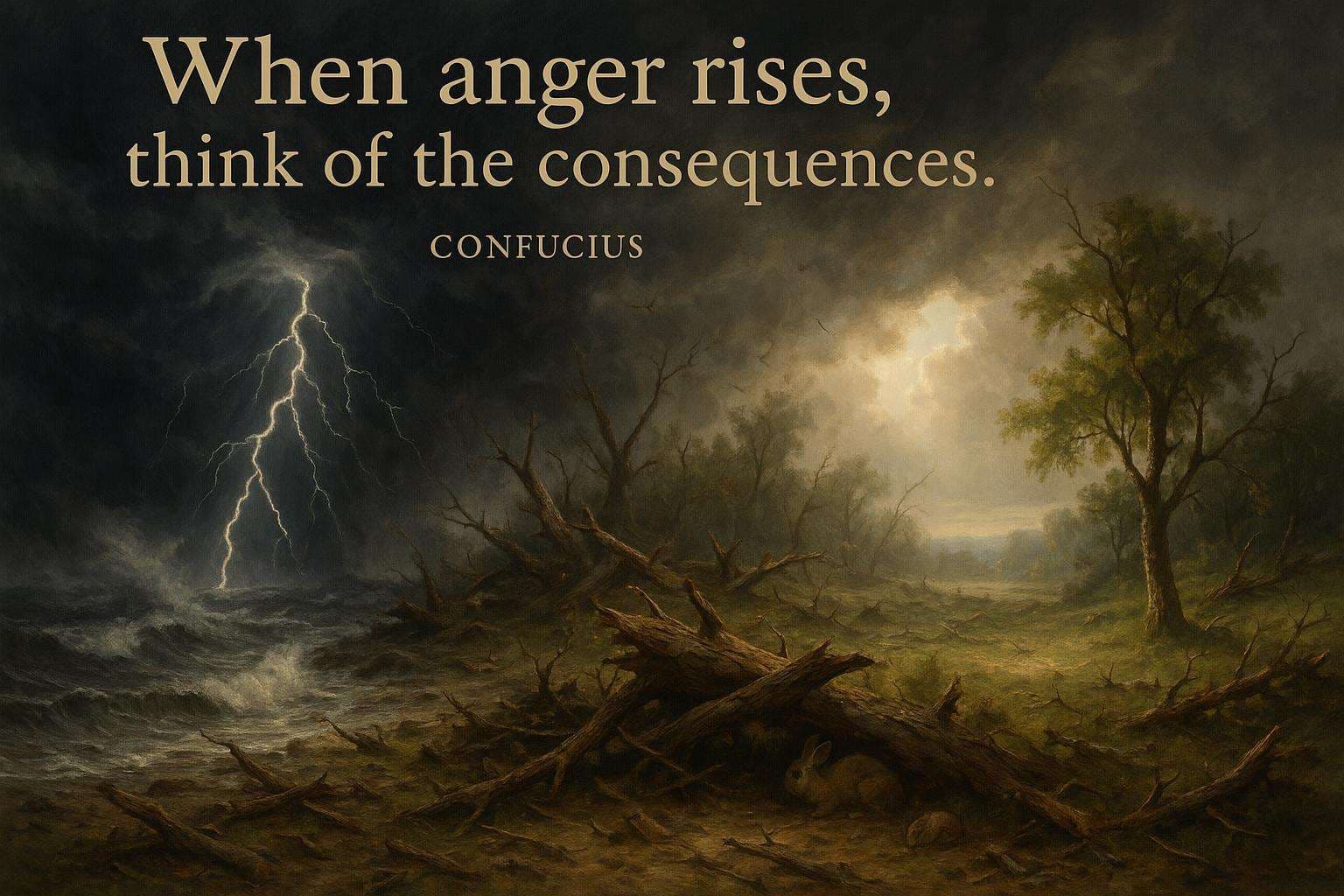Harnessing Anger: Confucius on Mindful Restraint

When anger rises, think of the consequences. — Confucius
The Wisdom of Measured Response
Confucius’s admonition to pause and consider the consequences when anger surfaces is a succinct guide to emotional intelligence. Rather than suppressing emotion, he advocates for temperance—a principle deeply rooted in Confucian philosophy. In both the Analects and classroom traditions, his teachings emphasize self-control as essential to personal development and harmonious relationships.
Cultural Context and Social Harmony
Moving from individual conduct to societal well-being, Confucian thought views unchecked anger as a threat to social order. Ancient China was organized around hierarchical relationships, where losing one’s temper could disrupt familial or civic harmony. The sage’s advice thus serves not only personal tranquility but also larger communal stability, echoing in practices of ritual courtesy and mediation.
Historical Parallels in Other Traditions
Building on this, similar ideas surface across cultures. For example, the Stoic philosopher Seneca, in his essay 'On Anger' (c. 41 AD), warns that rage blinds reason and breeds regret. This cross-cultural consensus underscores a universal insight: anger, when unexamined, often leads to actions we later lament, whereas reflection opens the door to wisdom.
Modern Psychology and Emotional Regulation
Transitioning to the present, contemporary psychology reinforces Confucius’s guidance. Cognitive-behavioral therapy and mindfulness training both teach individuals to pause before reacting, assessing their emotions and likely outcomes. Studies demonstrate that those who reflect during moments of anger experience fewer interpersonal conflicts and greater emotional well-being, validating ancient wisdom with empirical evidence.
Practical Steps for Mindful Anger Management
To bring Confucius’s teaching into daily life, one might employ techniques such as deep breathing, journaling, or a simple mental pause before speaking in anger. By developing the habit of considering consequences—a skill sharpened with practice—we not only avoid immediate regrets but also move closer to the sage’s ideal of virtuous living and enduring respect.